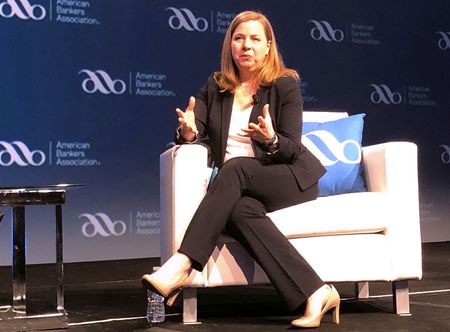 1
1 1
1
WASHINGTON (Reuters) – An apparent rebound in the residential housing market could impact the Federal Reserve’s inflation fight, with home prices “leveling out” even as the U.S. central bank awaits the impact of falling rents on headline inflation data, Fed Governor Michelle Bowman said on Wednesday.
“We expect lower rents will eventually be reflected in inflation data as new leases make their way into the calculations,” Bowman said in prepared remarks to a “Fed Listens” community event in Boston focused on the job market and affordable housing.
Fed policymakers have for several months said they were counting on easing rental inflation to eventually lower the headline inflation numbers, since rents are factored into the data using a yearly average.
But potentially offsetting that, “the residential real estate market appears to be rebounding,” Bowman said. Home prices have been “leveling out recently, which has implications for our fight to lower inflation.”
Bowman, who has been among the more hawkish Fed officials, did not say how a housing rebound might influence her policy views or the Fed’s decision of whether or not to raise interest rates at its June 13-14 meeting.
It does suggest skepticism, however, about one of the aspects of inflation that Fed officials have expected to turn in their favor.
When the Fed began to signal it was going to raise rates in the fall of 2021, and then followed through with an aggressive rate hiking cycle that kicked off in March of the following year, home mortgage rates also escalated. A slowdown in sales and a drop in prices followed.
But that process may have reached a bottom, with the S&P CoreLogic Case-Shiller national index of home prices rising in February and March on a month-over-month basis.
Building starts and permits may have also reached their low points, and sentiment among home builders has been improving.
(Reporting by Howard Schneider; editing by Paul Simao)